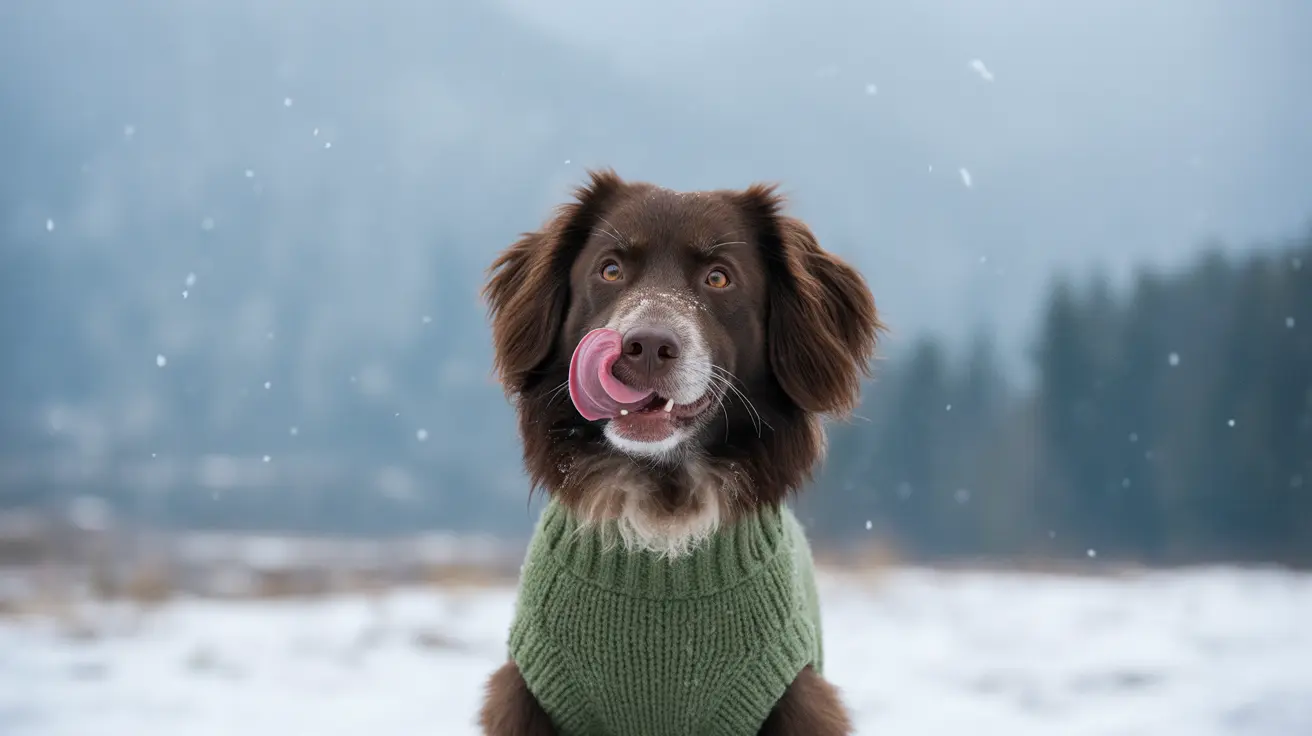When your furry friend is experiencing digestive issues, knowing exactly what to give a dog for upset stomach and vomiting can make the difference between a quick recovery and prolonged discomfort. This comprehensive guide will walk you through safe, effective options for helping your dog feel better, while explaining when home remedies are appropriate and when veterinary care becomes necessary.
Understanding how to properly care for a dog with stomach issues isn't just about knowing what foods to offer—it's about implementing a complete care strategy that promotes healing while preventing further complications. Let's explore the most effective approaches to helping your dog recover from digestive upset.
Initial Care Steps for Dogs with Upset Stomach
The first 12-24 hours after your dog shows signs of stomach upset are crucial for recovery. Start by withholding food for 6-12 hours after the last vomiting episode to give your dog's digestive system a chance to rest. During this time, ensure small amounts of water are available to prevent dehydration.
Safe Foods for Dogs with Stomach Issues
The Bland Diet Approach
After the initial fasting period, introduce a bland diet consisting of easily digestible foods:
- Plain boiled chicken (skinless and boneless)
- White rice (plain, no seasonings)
- Plain canned pumpkin (not pie filling)
- Bone broth (unseasoned)
Serve these foods in small portions every 2-3 hours rather than large meals to prevent overwhelming your dog's sensitive stomach.
Hydration Solutions
Maintaining proper hydration is crucial when your dog is experiencing digestive issues. Consider these options:
- Ice chips for controlled water intake
- Diluted bone broth
- Pet-specific electrolyte solutions
- Small, frequent water offerings
When to Seek Veterinary Care
While many cases of upset stomach can be managed at home, certain symptoms require immediate professional attention:
- Severe or persistent vomiting
- Blood in vomit or stool
- Lethargy or collapse
- Signs of dehydration
- Suspected toxin ingestion
- High fever
Transitioning Back to Regular Food
Once your dog shows improvement, gradually transition back to their regular diet over 5-7 days. Start by mixing small amounts of regular food with the bland diet, slowly increasing the proportion of regular food while decreasing the bland diet components.
Prevention Strategies
To minimize future episodes of stomach upset:
- Avoid sudden diet changes
- Prevent access to garbage and table scraps
- Keep toxic foods out of reach
- Maintain a consistent feeding schedule
- Store pet food properly to prevent spoilage
Frequently Asked Questions
What are the best foods to give a dog with an upset stomach and vomiting?
The best foods include plain boiled chicken, white rice, canned pumpkin, and bone broth. These foods are easily digestible and gentle on the stomach while providing necessary nutrients.
How can I safely treat my dog's vomiting at home without a vet?
Start with a 6-12 hour fast, then introduce small amounts of bland food. Ensure access to water in small amounts, and monitor for improvement. If symptoms persist or worsen, contact your veterinarian.
What are the signs that my dog needs immediate veterinary attention for vomiting?
Seek immediate veterinary care if you notice blood in vomit or stool, severe lethargy, signs of dehydration, persistent vomiting, or suspected toxin ingestion.
Can I use human medications like Zofran for my dog's upset stomach?
Never give human medications without veterinary approval. These medications can be dangerous or fatal for dogs and may interact poorly with their metabolism.
How long should I keep my dog on a bland diet after vomiting?
Maintain the bland diet for 3-5 days after symptoms resolve, then gradually transition back to regular food over 5-7 days. If symptoms return, consult your veterinarian.
Remember, while many cases of upset stomach can be managed at home with appropriate care and diet modification, persistent or severe symptoms always warrant professional veterinary attention. Your dog's health and safety should always be the primary concern when making treatment decisions.






